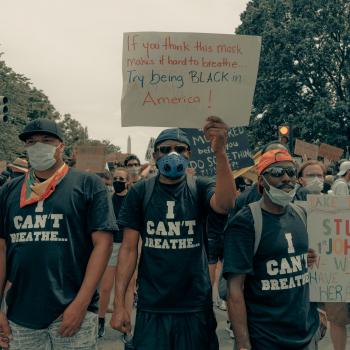According to Merriam-Webster, being politically correct means “conforming to a belief that language and practices which could offend political sensibilities should be eliminated.”
Hate speech, on the other hand, is “speech expressing hatred of a particular group of people.”
These phrases are not antonyms, though they are often treated as such. It’s possible to “offend political sensibilities” without having expressed hatred towards anyone, or even saying that you dislike them. For example, a person might politely say they disagree with someone’s choices, beliefs, or lifestyle, without using a malicious tone or wishing harm on them.
It’s the “you’re either with us or against us” mentality, even though it’s not a crime to disagree, and it’s possible to do so without hating or harming anyone.
The Internet has changed communication a lot, though. People tend to paint things as either black or white, and even if someone doesn’t belong to either category, they’re forced into one of them anyway. It’s the “you’re either with us or against us” mentality, even though it’s not a crime to disagree, and it’s possible to do so without hating or harming anyone. Sadly, this kind of thought process often leads to cyberbullying and nasty arguments.
I’ve noticed that we are also lacking this balance among Muslims. On the one hand, there is a group that tries to force their ultra-strict religious views on everyone, and put down people who don’t follow it, or even declare that they aren’t Muslims. On the other hand, there is also a group that attempts to impose their more individualistic, relaxed interpretation of the religion on everyone. This group also does some name-calling, such as automatically labeling those who have a different viewpoint as the “haram police” or “too extreme.”
In a time when everyone feels the need to have and express their opinion about everything, we need to remember that others are entitled to their opinions just as much as we are.
Both groups, in my opinion, need more flexibility, gentleness, and understanding. Islam asks us to speak politely, even when stating our opinions and disagreeing with one another. God says:
“O you who have believed, let not a people ridicule [another] people; perhaps they may be better than them; nor let women ridicule [other] women; perhaps they may be better than them. And do not insult one another and do not call each other by [offensive] nicknames. Offensive words are terrible after [having] faith. And whoever does not repent – then it is those who are the wrongdoers.” [Qur’an 49:11]
It’s important to recognize that being judgmental is not just something that the “other side” does. We are all guilty of it at times, and need to allow others to disagree with us without making assumptions about their intentions or thinking that just because they don’t believe what we do, they must be out to get us. And in a time when everyone feels the need to have an opinion about everything (and express it loudly), we need to remember that others are entitled to their opinions just as much as we are.
True freedom of speech is when a person should be able to say “I disagree with “X” for personal/religious/moral reasons, but I am not forcing my lifestyle or choices on anyone.” Saying “I disagree with X” is not the same as saying “I hate people who do X.” That’s where the middle ground lies. That’s what we need to recognize and respect, in order for all of us to grow, learn, and come to an understanding.











